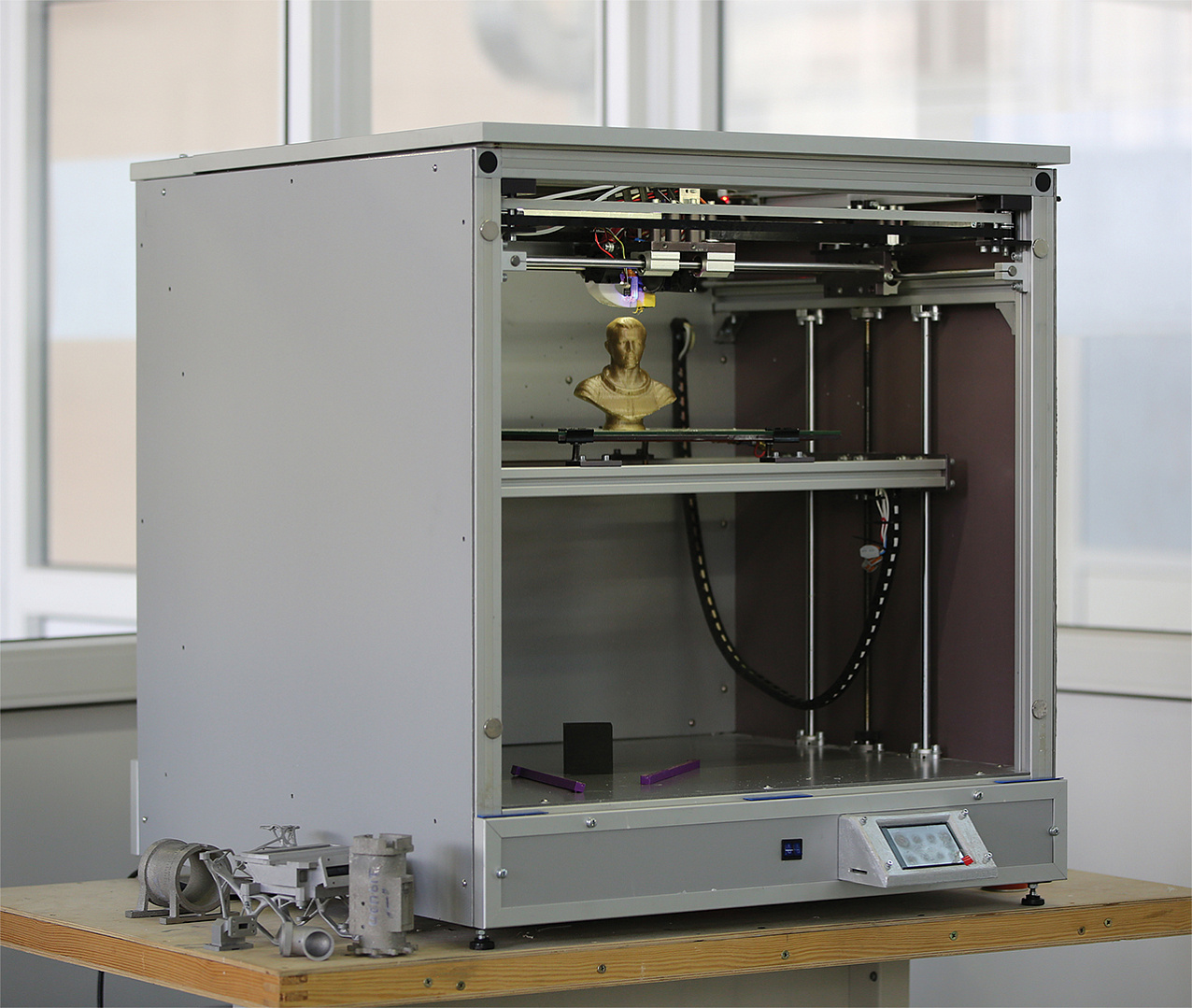本所的增材制造技术

RIPI is undertaking experimental trials for a range of product mockups, containing components, which have been made using additive manufacturing technologies.
The RIPI’s research/fabrication department, headed by Maxim Deryabin, is now engaged in development, adopting and adapting additive manufacturing technologies at our Institute. In an interview with our Press Service he shared his thoughts on the additive manufacturing technologies:
- Over the last years, 3D-design has now become a general practice as the first stage of designing any products, assembly units or components. Through the application of this method it has become possible for us to minimize risk of human errors; to reduce the labor intensity, required for developing design documentation with its subsequent adjustments.
Mastering the additive technologies has been carried out at our Institute since 2018. In 2020, our engineers developed and commissioned an FDM-printer, a simple and inexpensive office device, that now allows making models of future products, carrying out their mocking-up and evaluation of the technological effectiveness of the design.
The FDM-printer is used to accomplish 3D-printing of individual simple components and different tooling, made of plastic: caps, plugs, guides, elements of nanosatellites, etc. as part of this initiative research work.
The main restriction in FDM-printer usage is the need to apply relatively low-temperature plastic for manufacturing products., is more promising for our Institute. A more promising solution for our Institute is printing components and assembly units from metal powders, chiefly from aluminum and titanium alloys.
One of the critical challenges facing our technologists currently is mastering SLM (selective laser melting) method for fabricating waveguide path elements from aluminum powders. Mastering SLM-printing will result in considerable reduction of costs, related to preparation of manufacturing process; reduction of labor intensity and time needed for the completion of fabricating the most sophisticated components comprised in waveguide path systems.
It will also become possible to produce individual assembly units as monolithic-type products, which previously cannot be fabricated using traditional methods of mechanical processing. At present, the post-processing of prototypes of body parts for roll and pitch drives, made using EBM (electron beam melting) method from titanium powders is accomplished at the manufacturing facilities of our partners. This is our first experience of application of components, made using additive manufacturing methods from metal powders.
In the short term, RIPI is planning to acquire SLM-machine for printing components from metal powders. It will allow us to master operating practices and fabricate components in a fundamentally new way. The introduction of such equipment will enhance the designers’ capabilities; provide impetus for generating absolutely new technological/constructive solutions and allow our Institute to join the league of enterprises, which actually realize the principles of digitalization related to the fourth technological paradigm.
RIPI Press Service